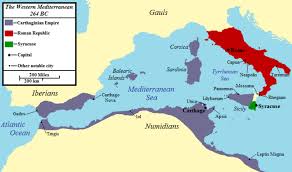
Introduction
Papua New Guinea (PNG) is a nation of unparalleled diversity and depth, located in the southwestern Pacific Ocean. With over 800 distinct languages and a vast array of ethnic groups, PNG is considered one of the most culturally rich countries in the world. In recent years, it has attracted attention not only for its biodiversity and indigenous heritage but also for its economic developments and environmental challenges.
Cultural Diversity
The cultural landscape of Papua New Guinea is vibrant and multifaceted. Home to various tribes, each with unique traditions, art forms, and languages, PNG showcases an array of cultural festivals throughout the year. The most prominent among these is the National Mask Festival, which celebrates the rich legacy of mask-making in tribal societies. Such events promote not only local tourism but also a deeper understanding of the indigenous ways of life.
Environmental Richness
Papua New Guinea houses some of the most biodiverse ecosystems on the planet, including rainforests, coral reefs, and mountain ranges. This wealth of natural resources comes with significant responsibilities as the country combats deforestation, climate change, and environmental degradation. Recent initiatives are focused on sustainable management practices aimed at preserving the unique flora and fauna and addressing the threats posed by climate change. The local government, along with international NGOs, has been working on conservation projects that involve local communities in safeguarding their environment.
Economic Development
Economically, PNG is rich in natural resources such as gold, copper, and oil. These resources have been pivotal in driving the nation’s economy, yet the reliance on extractive industries poses risks of environmental harm and socio-economic displacement. In recent years, foreign investments have surged, aiming to tap into the country’s rich mineral and energy deposits. However, this expansion has raised concerns regarding the impact on local communities and the environment.
Challenges Ahead
Despite its wealth in culture and resources, Papua New Guinea faces significant challenges. Political instability, inadequate infrastructure, and public health crises are detriments to growth and development. Moreover, the coronavirus pandemic had a considerable impact on the economy, exacerbating existing vulnerabilities in the health and education sectors. As PNG seeks to navigate these challenges, it is apparent that collaborative efforts between the government, communities, and international partners will be crucial.
Conclusion
Papua New Guinea stands at a crossroads, balancing its rich cultural heritage and ecological wealth with the pressing demands of modern development. As global interest in this Pacific nation grows, it is vital for all stakeholders to prioritise sustainability and inclusivity in their efforts to shape the future of PNG. The path forward will require nuanced solutions that respect local traditions while embracing change, ensuring that this extraordinary country can thrive for generations to come.
You may also like

Discovering the Beauty and Culture of Norway

Exploring Monmouth: History, Attractions and Community
